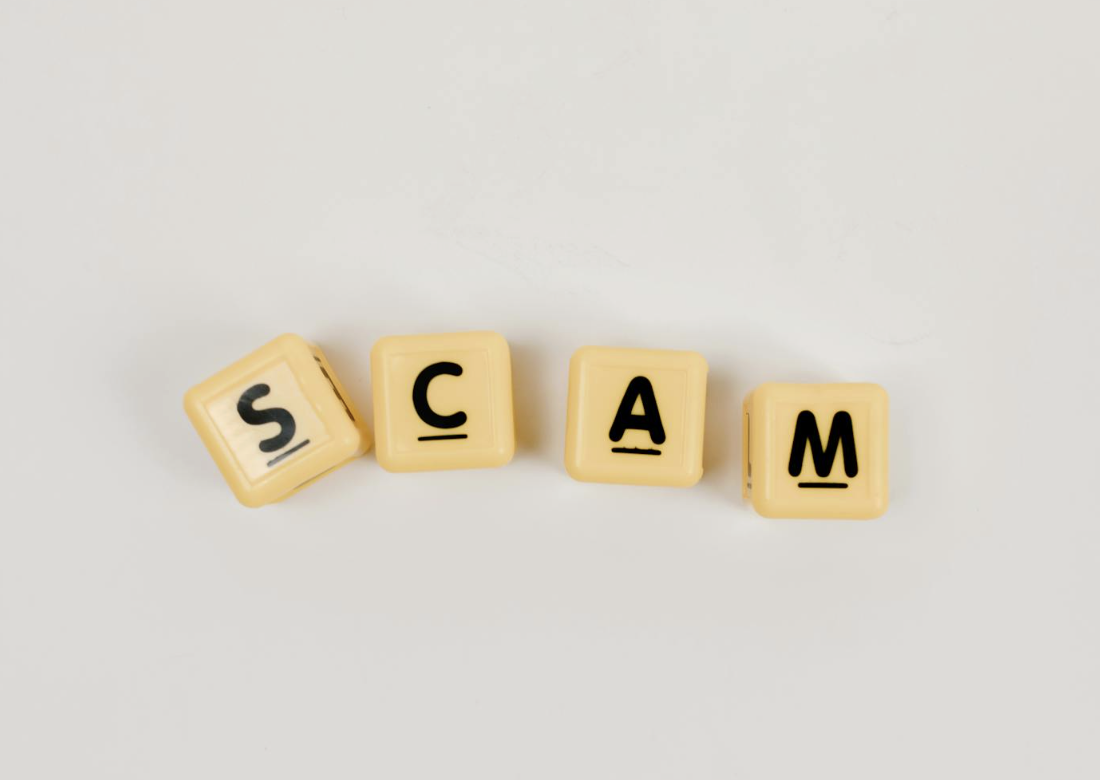
It's that time of year again when your mailbox fills up with Medicare information, your phone rings more often, and unfortunately, scammers gear up for what they consider their most profitable season. Medicare's Open Enrollment period, running from October 15 through December 7, brings a surge in scam calls, fraudulent mailings, and misleading marketing.
The numbers tell a sobering story.
Medicare fraud costs Americans approximately $60 billion each year—that’s billion with a “B.”
To put that in perspective, that's more than the entire annual budget of most states.
And with over 66 million Medicare beneficiaries nationwide, 89.4% of whom are over 65, there's no shortage of potential targets.
Why scammers love Medicare season
Think of Medicare open enrollment as Christmas morning for criminals.
During this six-week window, millions of Americans are actively reviewing their healthcare options, sharing personal information with insurance representatives, and making important financial decisions about their coverage.
Scammers know that during this time, seniors provide vital personal information to Medicare, and they also know that older adults are ideal victims because they are more likely to answer the phone, be socially isolated, have significant savings, or have cognitive deficits.
Recent federal prosecutions show just how brazen these operations have become.
In February 2025, the US Attorney's Office charged a North Carolina man with conspiracy to launder $3 million as part of a shocking Medicare scam, where he and his business partner submitted over $100 million in false medical equipment claims during just four months.
Separately, a federal grand jury indicted two Texas residents who conspired to file more than $359 million in fraudulent genetic testing claims to Medicare.
"Never confirm or provide your Medicare number with anyone who contacts you unexpectedly, and you do not know and trust."
Also read: Unwanted medical gear at your door? It could be a dangerous Medicare scam
The perfect storm of vulnerability
If you feel like you've been getting more suspicious calls lately, you're not imagining it.
A massive data breach in 2023 exposed the personal information of more than 900,000 Medicare beneficiaries when hackers targeted Wisconsin Physicians Service Insurance Corporation, a Medicare contractor.
This breach has likely provided scammers with authentic-looking information that makes their pitches seem more credible.
The scammers' greatest hits
Medicare scammers have perfected several tried-and-true approaches that work year after year.
Here are the most common tactics they're using this enrollment season:
The "urgent card replacement" scam
You receive a call claiming your Medicare card is expired or needs to be “updated with a chip.”
The caller, who sounds official and may even have some of your personal information, explains that you need to verify your current card number to process the replacement.
The reality? Real Medicare cards are free and mailed to you automatically.
Medicare will never unexpectedly call, email, text, or message you on social media to ask for your Medicare, Social Security, or bank account numbers.
Real vs. fake Medicare contact
REAL: Medicare contacts you through US mail for official business
FAKE: Unexpected calls, texts, emails, or social media messages asking for personal information
REAL: Free card replacements sent automatically
FAKE: Requests for payment to “process” or “expedite” new cards
Also read: Are you unknowingly falling for Medicare scams? Here’s how to protect yourself
The "you're pre-approved" pitch
These calls often begin with congratulations—you've been “pre-approved” for better coverage with lower costs!
The scammer may even know some basic details about you, often gleaned from data breaches or public records, to sound legitimate.
They'll pressure you to “secure your spot” before the offer expires, usually by the end of the day.
Remember: The Centers for Medicare & Medicaid Services does not endorse or prefer any particular plan option, so if someone tries to convince you that Medicare endorses a specific plan, they're a scammer at worst and devious at best.
Also read: Wisconsin Rapids scam costs resident $600,000: What seniors should know
The "free gift" trap
Offers for free medical equipment, health screenings, or even grocery cards in exchange for your Medicare information are classic scam tactics.
This is a common scheme used by fraudsters to get your Medicare details, with scammers often claiming they represent a company that will give you free medical supplies in exchange for your information.
Did you know?
Did you know?
Your Medicare ID number is as valuable to criminals as your credit card number. With it, they can submit fake claims for medical equipment, prescription drugs, or services you never received, potentially maxing out your benefits and leaving you responsible for copayments on treatments you never got.
Also read: A new warning about Social Security scam has seniors on alert
Warning signs that scream "scam"
Learning to spot the warning signs can save you thousands of dollars and hours of headache.
Here's what to watch for:
Unsolicited mailings, calls, texts, or emails asking for your Medicare number, combined with high-pressure or threatening tactics urging you to “act now.”
Anyone who imposes an enrollment deadline that’s not October 15–December 7, such as claiming you only have until 3 p.m. today to enroll or your Medicare coverage will be cancelled.
Too-good-to-be-true offers related to insurance plans, like free groceries, refunds, or other unrealistic benefits.
Requests for payment over the phone to “process” your enrollment.
Mailings that mimic government logos to look official.
Don't trust your caller ID
Here's something that catches many people off guard: Your caller ID might show Medicare's name or phone number, but caller ID can be faked.
Technology makes it easy for scammers to make their calls appear to come from legitimate organizations.
Your defense strategy
Protecting yourself doesn't require becoming a technology expert or never answering your phone.
It just requires knowing what legitimate Medicare contact looks like and having a plan when something seems off.
Also read: Medicare data breach affects over 100,000—here’s what you need to know now
The golden rules
Treat your Medicare card like a credit card.
Don't give out your Medicare number to anyone who contacts you unexpectedly, even if they claim to be from Medicare itself.
If you think a call might be legitimate, hang up and call 1-800-MEDICARE (1-800-633-4227) to check.
This is always the safe approach—legitimate Medicare representatives will understand why you're being cautious.
Also read: Are you at risk? Representative reveals how UnitedHealthcare might be taking advantage of Medicare
Where to get real help
For assistance comparing costs, coverage, and plans, contact your State Health Insurance Assistance Program (SHIP) or find information about your coverage options at Medicare.gov or by calling 1-800-MEDICARE.
Every state has SHIP counselors—volunteers trained to provide free, unbiased help with Medicare questions.
These folks know the ins and outs of Medicare and can help you navigate your options without trying to sell you anything.
If you've been targeted
Don't panic if you realize you've shared information with a scammer. Quick action can minimize the damage.
First, report Medicare impersonators and other scams at 1-800-MEDICARE.
Then tell the FTC at ReportFraud.ftc.gov.
Monitor your Medicare statements carefully for services you didn't receive. With your Medicare information, criminals can submit fake claims in your name to get free prescription drugs, healthcare services, or supplies, which maxes out benefits and charges you for services you didn’t receive.
Also read: Seniors are losing more to scams than ever—here’s a free program helping them fight back
The bigger picture
While these scams are frustrating and can feel overwhelming, remember that you have more power than you might think.
In 2024 alone, the US Department of Justice identified and charged dozens of criminals with Medicare fraud totaling billions of dollars.
Law enforcement is taking these crimes seriously, and your reports help them build cases against the scammers.
Stay safe during Medicare open enrollment
- Medicare never calls you unexpectedly asking for personal information
- Hang up on suspicious calls and call 1-800-MEDICARE to verify
- Use only official websites: Medicare.gov and HealthCare.gov
- Get free help from your state's SHIP counselors
- Report scams to 1-800-MEDICARE and ReportFraud.ftc.gov
- Remember: If someone is pressuring you to act “now,” they're probably scamming you
What This Means For You
The key is staying informed and trusting your instincts. If something feels off about a call, email, or visit, it probably is.
You've lived long enough to develop good judgment—now's the time to use it.
Medicare open enrollment can feel complicated enough without worrying about scammers.
But armed with the right information and a healthy dose of skepticism, you can navigate this season safely and make the healthcare decisions that are right for you.
Read next:
- Primary Insurance falling short? Here’s why secondary coverage might be your best move
- Seniors, beware—your online safety could be at risk if you ignore this critical advice
- When to sign up for Medicare: Key dates and tips to avoid penalties
What scam tactics have you encountered during Medicare season? Share your experiences in the comments below—your story might help protect someone else from falling victim.
Primary Source
https://www.usatoday.com/story/mone...siness-bureau-medicare-aca-scams/86788163007/
This Medicare Open Enrollment season, learn how to protect yourself from scams | Consumer Advice
Cited text: Every year, scammers get more active around Medicare Open Enrollment Period, trying to get your money, information, or both.
Excerpt: Medicare's Open Enrollment period, running from October 15 through December 7, brings a surge in scam calls, fraudulent mailings, and misleading marketing
https://consumer.ftc.gov/consumer-a...lment-season-learn-how-protect-yourself-scams
Medicare Open Enrollment Brings Rise in Scams
Cited text: Unfortunately, it also brings a surge in scam calls, fraudulent mailings, and misleading marketing.
Excerpt: Medicare's Open Enrollment period, running from October 15 through December 7, brings a surge in scam calls, fraudulent mailings, and misleading marketing
https://www.prnewswire.com/news-rel...nrollment-brings-rise-in-scams-302568263.html
5 Warning Signs of a Medicare Scam
Cited text: The Administration for Community Living reports that Medicare fraud and other abuse costs the U.S. government and taxpayers around $60 billion each ye...
Excerpt: Medicare fraud costs Americans approximately $60 billion each year
https://www.ncoa.org/article/5-warning-signs-of-a-medicare-scam-and-how-to-protect-yourself/
Medicare Open Enrollment Attracts Enrollees and Scammers Alike
Cited text: Medicare fraud costs Americans an estimated $60 billion every year, according to the Social Security Administration.
Excerpt: Medicare fraud costs Americans approximately $60 billion each year
https://www.managedhealthcareexecut...ollment-attracts-enrollees-and-scammers-alike
Medicare Open Enrollment Attracts Enrollees and Scammers Alike
Cited text: The Medicare population is a popular target for scammers because it provides them access to more than 66 million people in the United States, 89.4% of...
Excerpt: with over 66 million Medicare beneficiaries nationwide, 89.4% of whom are over 65
https://www.managedhealthcareexecut...ollment-attracts-enrollees-and-scammers-alike
Beware of These Three Medicare Open Enrollment Scams | Kiplinger
Cited text: During this time, seniors provide vital personal information to Medicare, which scammers may use to access their financial accounts or submit fraudule...
Excerpt: Scammers know that during this time, seniors provide vital personal information to Medicare, and they also know that older adults are ideal victims because they are more likely to answer the phone, be socially isolated, have significant…
https://www.kiplinger.com/retirement/medicare/beware-three-medicare-open-enrollment-scams
5 Warning Signs of a Medicare Scam
Cited text: In February 2025, the U.S. Attorney’s Office charged a North Carolina man with conspiracy to launder $3 million as part of a shocking Medicare scam. T...
Excerpt: In February 2025, the U.S.
https://www.ncoa.org/article/5-warning-signs-of-a-medicare-scam-and-how-to-protect-yourself/
5 Warning Signs of a Medicare Scam
Cited text: Separately, a federal grand jury indicted two Texas residents who conspired to file more than $359 million in fraudulent genetic testing claims to Med...
Excerpt: Separately, a federal grand jury indicted two Texas residents who conspired to file more than $359 million in fraudulent genetic testing claims to Medicare
https://www.ncoa.org/article/5-warning-signs-of-a-medicare-scam-and-how-to-protect-yourself/
Beware of These Three Medicare Open Enrollment Scams | Kiplinger
Cited text: The personal information of more than 900,000 Medicare beneficiaries was exposed during a data breach that occurred between May 27 and May 31, 2023.
Excerpt: A massive data breach in 2023 exposed the personal information of more than 900,000 Medicare beneficiaries when hackers targeted Wisconsin Physicians Service Insurance Corporation, a Medicare contractor
https://www.kiplinger.com/retirement/medicare/beware-three-medicare-open-enrollment-scams
This Medicare Open Enrollment season, learn how to protect yourself from scams | Consumer Advice
Cited text: But real Medicare cards are free and mailed to you automatically.
Excerpt: Real Medicare cards are free and mailed to you automatically
https://consumer.ftc.gov/consumer-a...lment-season-learn-how-protect-yourself-scams
Avoid scams during Medicare’s Open Enrollment Period | Consumer Advice
Cited text: Medicare will never unexpectedly call, email, text, or message you on social media to ask for your Medicare, Social Security, or bank account numbers....
Excerpt: Medicare will never unexpectedly call, email, text, or message you on social media to ask for your Medicare, Social Security, or bank account numbers
https://consumer.ftc.gov/consumer-alerts/2024/11/avoid-scams-during-medicares-open-enrollment-period
This Medicare Open Enrollment season, learn how to protect yourself from scams | Consumer Advice
Cited text: And true Medicare representatives won’t call, text, or email you out of the blue to ask for your numbers or a payment.
Excerpt: Medicare will never unexpectedly call, email, text, or message you on social media to ask for your Medicare, Social Security, or bank account numbers
https://consumer.ftc.gov/consumer-a...lment-season-learn-how-protect-yourself-scams
Watch Out for These Medicare Enrollment Period Scams (2025)
Cited text: The Centers for Medicare & Medicaid Services (CMS) does not endorse or prefer any particular plan option. If someone tries to convince you that Medica...
Excerpt: The Centers for Medicare & Medicaid Services does not endorse or prefer any particular plan option, so if someone tries to convince you that Medicare endorses a specific plan, they're a scammer at worst and devious at best
https://www.samshockaday.com/blog/watch-out-for-these-medicare-enrollment-period-scams
4 Medicare Scams Revived for 2025 | TNS
Cited text: A free product or testing trial may seem like a good proposition, but this is used as a common scheme by fraudsters to get your Medicare information. ...
Excerpt: This is used as a common scheme by fraudsters to get your Medicare information, with scammers often claiming they are from a company that will give you free medical supplies in exchange for your Medicare information
https://tnsi.com/resource/com/medicare-scams-revived-for-2024-blog/
Medicare Open Enrollment Brings Rise in Scams
Cited text: Unsolicited mailings, calls, texts, or emails asking for your Medicare number. High-pressure or threatening tactics urging you to "act now."
Excerpt: Unsolicited mailings, calls, texts, or emails asking for your Medicare number, combined with high-pressure or threatening tactics urging you to "act now"
https://www.prnewswire.com/news-rel...nrollment-brings-rise-in-scams-302568263.html
Watch Out for These Medicare Enrollment Period Scams (2025)
Cited text: Finally, anyone who imposes an enrollment deadline on you that's not October 15-December 7 is a scammer. For example, they could say you only have unt...
Excerpt: Anyone who imposes an enrollment deadline that's not October 15-December 7, such as claiming you only have until 3 pm today to enroll or your Medicare coverage will be cancelled
https://www.samshockaday.com/blog/watch-out-for-these-medicare-enrollment-period-scams
Medicare Open Enrollment Brings Rise in Scams
Cited text: Too-good-to-be-true offers related to insurance plans, like free groceries, refunds, or other unrealistic benefits.
Excerpt: Too-good-to-be-true offers related to insurance plans, like free groceries, refunds, or other unrealistic benefits
https://www.prnewswire.com/news-rel...nrollment-brings-rise-in-scams-302568263.html
Medicare Open Enrollment Brings Rise in Scams
Cited text: Mailings that mimic government logos to look official.
Excerpt: Mailings that mimic government logos to look official
https://www.prnewswire.com/news-rel...nrollment-brings-rise-in-scams-302568263.html
Avoid scams during Medicare’s Open Enrollment Period | Consumer Advice
Cited text: Your caller ID might show Medicare’s name or phone number. But caller ID can be faked.
Excerpt: Your caller ID might show Medicare's name or phone number, but caller ID can be faked
https://consumer.ftc.gov/consumer-alerts/2024/11/avoid-scams-during-medicares-open-enrollment-period
This Medicare Open Enrollment season, learn how to protect yourself from scams | Consumer Advice
Cited text: It might show Medicare’s name or phone number, but caller ID can be faked.
Excerpt: Your caller ID might show Medicare's name or phone number, but caller ID can be faked
https://consumer.ftc.gov/consumer-a...lment-season-learn-how-protect-yourself-scams
Medicare Open Enrollment Brings Rise in Scams
Cited text: Treat your Medicare card like a credit card.
Excerpt: Treat your Medicare card like a credit card
https://www.prnewswire.com/news-rel...nrollment-brings-rise-in-scams-302568263.html
Avoid scams during Medicare’s Open Enrollment Period | Consumer Advice
Cited text: If you think a call might be real, hang up and call 1-800-MEDICARE (1-800-633-4227) to check.
Excerpt: hang up and call 1-800-MEDICARE (1-800-633-4227) to check
https://consumer.ftc.gov/consumer-alerts/2024/11/avoid-scams-during-medicares-open-enrollment-period
This Medicare Open Enrollment season, learn how to protect yourself from scams | Consumer Advice
Cited text: To check it out, hang up and call 1-800-MEDICARE (1-800-633-4227).
Excerpt: hang up and call 1-800-MEDICARE (1-800-633-4227) to check
https://consumer.ftc.gov/consumer-a...lment-season-learn-how-protect-yourself-scams
This Medicare Open Enrollment season, learn how to protect yourself from scams | Consumer Advice
Cited text: Contact your State Health Insurance Assistance Program (SHIP) for assistance. And find information about your coverage options at Medicare.gov — the o...
Excerpt: For assistance comparing costs, coverage, and plans, contact your State Health Insurance Assistance Program (SHIP) or find information about your coverage options at Medicare.gov or by calling 1-800-MEDICARE
https://consumer.ftc.gov/consumer-a...lment-season-learn-how-protect-yourself-scams
Avoid scams during Medicare’s Open Enrollment Period | Consumer Advice
Cited text: Report Medicare impersonators and other Medicare scams at 1-800-MEDICARE.
Excerpt: report Medicare impersonators and other Medicare scams at 1-800-MEDICARE
https://consumer.ftc.gov/consumer-alerts/2024/11/avoid-scams-during-medicares-open-enrollment-period
This Medicare Open Enrollment season, learn how to protect yourself from scams | Consumer Advice
Cited text: Report Medicare impersonators and other Medicare scams at 1-800-MEDICARE.
Excerpt: report Medicare impersonators and other Medicare scams at 1-800-MEDICARE
https://consumer.ftc.gov/consumer-a...lment-season-learn-how-protect-yourself-scams
This Medicare Open Enrollment season, learn how to protect yourself from scams | Consumer Advice
Cited text: Then tell the FTC at ReportFraud.ftc.gov.
Excerpt: Then tell the FTC at ReportFraud.ftc.gov
https://consumer.ftc.gov/consumer-a...lment-season-learn-how-protect-yourself-scams
Medicare Open Enrollment Attracts Enrollees and Scammers Alike
Cited text: With this information, criminals can submit fake claims in the beneficiary’s name to get free prescription drugs, healthcare services or supplies, whi...
Excerpt: With your Medicare information, criminals can submit fake claims in your name to get free prescription drugs, healthcare services or supplies, which maxes out benefits and charges you for services you didn't receive
https://www.managedhealthcareexecut...ollment-attracts-enrollees-and-scammers-alike
5 Warning Signs of a Medicare Scam
Cited text: In 2024 alone, the U.S. Department of Justice identified and charged dozens of criminals with Medicare fraud totaling billions of dollars.
Excerpt: In 2024 alone, the U.S. Department of Justice identified and charged dozens of criminals with Medicare fraud totaling billions of dollars
https://www.ncoa.org/article/5-warning-signs-of-a-medicare-scam-and-how-to-protect-yourself/






